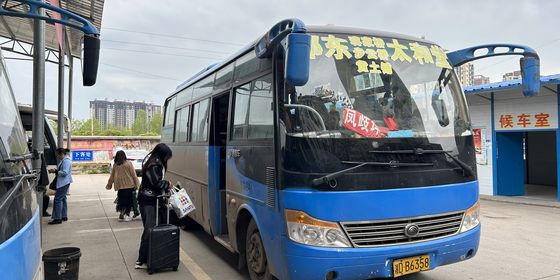E-bikes are everywhere and that’s a problem. Is a crackdown on the way?
How long before the hammer comes down?
The e-bike craze is well underway in big cities throughout China, and plenty of people are wondering when it will hit its peak and what’s coming next. Pretty much everyone who regularly rides or even sees the large numbers of e-bikes cluttering the streets of cities throughout China has wondered how much longer this can go on.
These bikes are bringing environmentally friendly, cheap, convenient transport to the masses, but there is a price being paid in terms of the street environment. Commuters and pedestrians are encountering roads and sidewalks that are difficult to pass due to the sheer number of bikes stacked upon them.
The most eye-catching case in recent weeks occurred during the Qingming festival in Shenzhen. On the first day of the festival, visitors to a lake park brought tens of thousands of bikes with them, cluttering walkways and slowing foot traffic to a crawl.
The local government ordered the bike sharing companies to remove the bikes overnight. Possibly fearing the consequences of leaving the bikes there overnight, the companies complied and the park was clear by morning. A hurried overnight clearance operation took place, and the bikes were banned from entering the park in the following days.
The problem is not just manifesting in Shenzhen, it’s an issue for cities throughout the country. A key attraction e-bikes are their convenience. Wherever you are, if you’re in a developed part of the city, there needs to be a bike somewhere nearby or they are of no use to you. The more bikes a particular e-bike company has, the more likely people are to be a regular customer and choose them over their competitors.
First-movers have a clear advantage here, and companies such as Mobike, the first and largest e-bike startup, have allied with manufacturers. Mobike has aligned itself with Foxconn (of iPhone manufacturing fame) in order to churn out massive numbers of bicycles. While at this point, they probably have the most bikes on the streets, a number of startups are rising up to compete with them.
Thus far, there have been relatively minor actions taken against companies, such as asking companies to liaise with local authorities and remove bikes from certain areas. There have also been moves to create special bike zones where the bikes are supposed to be left–though of course, adherence to this rule falls on users rather than the companies.
TWOC spoke with a representative of Coolqi, one of the newer entrants in the bike startup race, in an effort to discover what kind of things these startups are doing to avoid the wrath of the authorities.
A spokesperson said that essentially, they are going to reach out to their users via social media and try to educate them on the appropriate zones to park their bikes. Perhaps more importantly, they’re also going to set up plates for parking reports, which will be part of an effort to give scores to riders (most likely in much the same way as ride-share apps like Uber or Didi rank both drivers and customers).
Coolqi and most other bike apps are also hiring maintenance staff whose jobs are to basically go around picking up bikes from trouble spots.
As for whether these measures will prove sufficient to reduce the number of bikes left in awkward places and prevent the authorities from cracking down, only time will tell. But suffice to say the e-bike companies have incentives to make it work.











